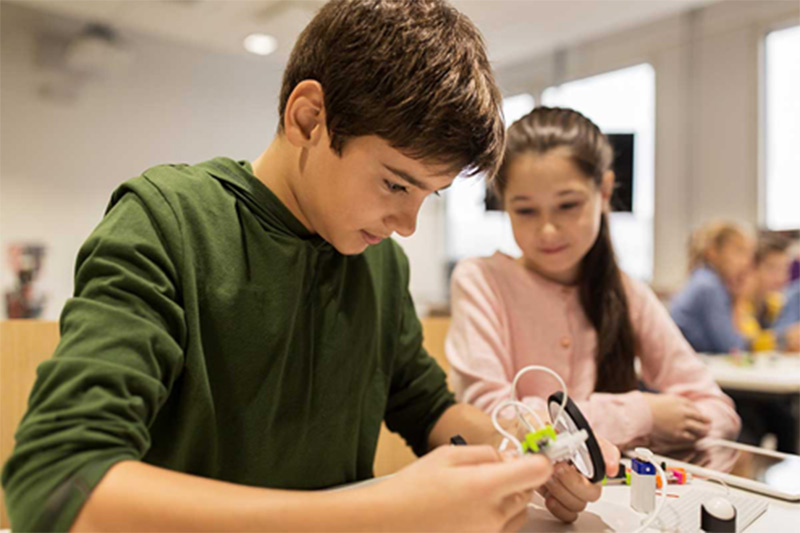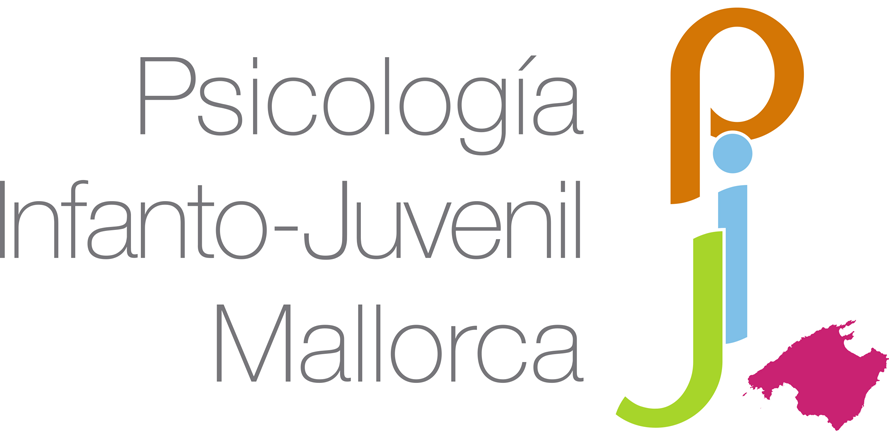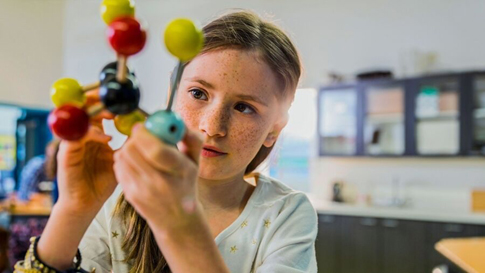
What are high abilities?
High abilities in children refer to a set of exceptional skills and talents in one or more areas of intellectual, creative, or artistic development. These children can be classified into three main categories: gifted, talented, and precocious, each with distinctive characteristics.
- Gifted: they have significantly higher performance in multiple areas, including cognitive skills, creativity, and leadership. Generally, their intelligence quotient (IQ) is very high, usually above 130, and they may show early development in skills such as reading, math, and abstract reasoning. These children often have a strong ability to learn quickly and efficiently, and they often display insatiable curiosity and independent thinking.
- Talented: They excel in specific areas and can be divided into simple talent (a single domain) or complex talent (several related areas). A simple talented child might be exceptional in music or math, while a complex talented might display advanced skills in both science and technology. These specific talents are not necessarily reflected in a high overall IQ, but they are reflected in very high performance in those particular areas.
- Precocious: they show an advanced development compared to their peers of the same age. This precocity can manifest itself in various areas, such as language, motor skills or social skills. Often, these children begin to speak, read, or write at an early age, demonstrating remarkable ease and fluency in these skills. However, it is important to observe whether this precocity is maintained over time or if it simply reflects an early development that is then equated with that of their peers.
What are the characteristics of children with high abilities?
Children with high abilities have a variety of characteristics that can manifest themselves in a variety of ways. These characteristics can be observed in different areas of development, such as cognitive, emotional, social, and creative.
Cognitive Characteristics:
- Superior intellectual capacity: they can learn and process information quickly and efficiently.
- Advanced vocabulary: extensive and sophisticated use of language at an early stage. Their ability to understand and use advanced vocabulary is remarkable.
- Problem-solving ability: They have an exceptional ability to solve complex and abstract problems. They can find creative and unconventional solutions to problems.
- Exceptional memory: they have a superior long-term memory, remembering details and facts accurately. They can retain information and learn new concepts quickly.
- Insatiable curiosity: show a deep interest in a wide range of topics. They constantly ask questions and seek to understand the “why” and “how” of things.
Emotional and Social Characteristics:
- Emotional sensitivity: they are highly sensitive and empathetic, being able to capture and understand the emotions of others easily. They can be intensely emotional, experiencing their feelings more deeply than their peers.
- Perfectionism: they have high expectations of themselves and can be self-critical. They seek perfection in their jobs and activities, which can generate frustration.
- Dyssynchrony: your intellectual development may be ahead of your emotional and social development, which can lead to internal and behavioral conflicts. They may feel out of place among peers of the same age.
- Deep Interests and Values: they often show unusual maturity and awareness of social, ethical and moral issues from an early age, having well-defined values and principles from an early age.
Creative Features:
- Imagination: they have a rich and active imagination, capable of generating original and creative ideas. They enjoy creative activities such as writing, art, and music.
- Divergent thinking: they are able to think divergently, generating multiple solutions to a problem. They can see connections and relationships that others don’t easily perceive.
- Innovation: they show a natural inclination towards innovation and invention. They like to experiment and try new ideas and methods.
Behavior and Learning Style:
- Autonomy in learning: they prefer to learn independently and can search for information on their own. They may become bored or frustrated in traditional learning environments that don’t challenge their abilities.
- Persistence and determination: they are very persistent in achieving their goals and solving problems. They can show great determination and tenacity in their projects and interests.
- Intense concentration: able to concentrate deeply on a task or area of interest for long periods. They can lose track of time when they are immersed in activities that they are passionate about.
What problems or challenges may they present?
Children with high abilities can face a number of challenges in terms of mental health. Here are some common difficulties they may experience:
- Anxiety and stress: internal pressure to achieve high standards, perfectionism, and sensitivity can all contribute to elevated levels of anxiety and stress. They may experience intense worries about their academic performance, social relationships, or personal expectations. To learn more, we can consult “Test anxiety” or “Social phobia in adolescents and children“.
- Tics: some gifted children may develop nervous tics, especially under stress or academic pressure. These tics can be physical (such as blinking or shrugging your shoulders) or vocal (such as making noises). For example: frequent blinking, shrugging or other repetitive movements or emitting sounds or words involuntarily, especially in stressful situations.
- Self-esteem issues: High levels of self-criticism and high expectations can negatively affect your self-image and self-esteem. They may feel frustrated or discouraged when they don’t meet their own expectations or when they face difficulties.
- Social adjustment problems: emotional desynchrony and uneven social development can make it difficult to adjust and interact with peers of the same age. They may experience difficulty relating to children their age due to divergent interests or a more complex communication style.
- Emotional sensitivity: emotional intensity can make children more susceptible to criticism, rejection, or negative emotions. They may experience rapid mood swings or intense emotional reactions to stressful or conflicting situations.
- Low tolerance for frustration: perfectionism and the expectation of achievement can make them struggle to deal with failure or obstacles. They can easily get frustrated when things don’t go as expected or when they face situations they can’t control.
- Pursuit of justice: because of their strong sense of justice and fairness, they care deeply about what they consider right or wrong and may react intensely to situations they perceive as unfair.
- Sleep problems: an active mind and difficulty disconnecting can interfere with the quality and quantity of sleep. They may experience difficulty falling asleep or wake up frequently during the night, which can affect their overall well-being and daytime performance.
- Depression: in some cases, internal pressure, high expectations, and emotional sensitivity can contribute to the development of depressive symptoms. They may show apathy, lack of interest in activities they once enjoyed, changes in appetite or sleep pattern, among other symptoms.
- Behavioral Problems: difficulties in adapting to social or school norms and the search for autonomy can manifest themselves through challenging behaviors. They may show resistance to authority, disobedience, or disruptive behaviors in the school or family environment. On this particular topic, we talked more deeply in “What to Do When My Child Misbehaves?“.
How can we help children with high abilities?
Raising a child with high abilities can be a rewarding process, but above all challenging. Here are some tips that can make parenting easier:
- Stimulate learning and curiosity: provide advanced educational materials, intellectual challenges, and opportunities to explore your passions. Invest in books, toys, and activities that pique their interest and promote critical thinking.
- Fostering a supportive and understanding environment: actively listening to and validating their concerns, interests, and emotions.
- Develop social skills: facilitate participation in groups and activities where you can interact with other children with similar interests and thus be able to develop social skills.
- Educational accommodations: the education system is designed to address the needs of most students, but gifted children often require a more personalized approach that challenges and motivates them.
- Set realistic goals: while it’s natural to have high expectations with a gifted child, it’s essential to set realistic goals and recognize their efforts. Celebrating achievements, regardless of their magnitude, fosters self-esteem and self-love.
- Promote effort rather than the result itself: it is important to value and praise effort and the learning process, both academically and in other areas. Focusing on effort helps develop a mindset of growth and resilience, and reduces the pressure to get perfect results.
- Promote autonomy: encouraging independence from an early age helps to develop self-management and responsibility skills. Allowing them to make decisions and take on age-appropriate responsibilities fosters a sense of control and self-confidence.
- Accept them as they are and understand their differences: it is crucial to accept gifted children as they are, without comparing them to others, as this can lead to frustrations for both parents and children. Understanding and valuing their differences helps them develop a positive self-image and feel safe and appreciated for who they really are.
What activities can help them?
Activities for gifted children should be challenging, stimulating and varied, allowing the development of cognitive, emotional and social skills. Some examples are:
Academic and Cognitive Activities:
- Research projects: allow research to be carried out on topics of interest and to make creative presentations of findings.
- Science and technology clubs: participate in experiments, programming and robotics.
- Enrichment programs: taking extracurricular courses or providing material in math, literature, history, languages, etc.
Artistic and Creative Activities:
- Visual arts: drawing, painting, sculpture or photography classes. From home we can also work on it by organizing activities.
- Music and theatre: music lessons or participation in theatre productions.
- Creative writing: workshops and writing competitions or encouraging the making of comics, texts… At home.
Physical and Sports Activities:
- Sports and exercise: playing a sport, especially as a team.
- Yoga and Meditation: classes to improve concentration and manage stress.
Social and Leadership Activities:
- Interest Groups: book clubs, chess, debates.
- Volunteering: getting involved in community projects.
Personal Development Activities:
- Problem solving: puzzles, strategy games, escape rooms.
- Language learning: foreign language classes and practice.
Supporting gifted children requires a deep understanding of their unique characteristics and challenges. Through a comprehensive approach that considers both their intellectual and emotional development, we can help them reach their full potential. Providing an environment that stimulates their curiosity, fosters their social development, and supports their emotional well-being is essential to their holistic growth. For parents, this can be a significant challenge. Raising a child with high abilities involves not only recognizing and nurturing their exceptional talents, but also addressing the emotional and social difficulties that can accompany these abilities.
If you need help managing the challenges that arise, we’re happy to help.
Laura Maymó Gallurt
Psychologist Nº Col. B-03427






